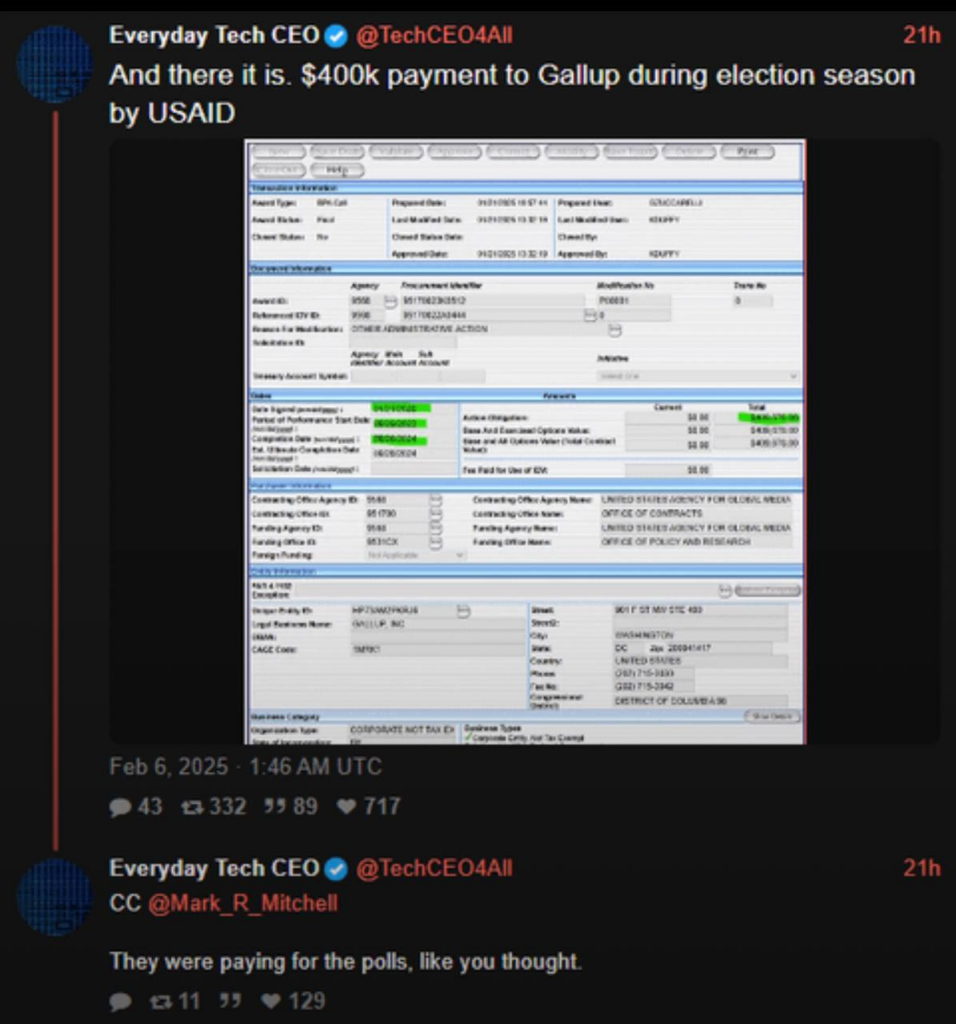A Suspicious Transaction?
A recent revelation on X has sparked controversy over a $400,000 payment from USAID to Gallup during the 2024 election season. The transaction’s purpose remains unclear, but some speculate it funded polling efforts to influence public opinion. Without direct confirmation from USAID or Gallup, the true intent of this payment remains a mystery.

Timing Raises Eyebrows
USAID, primarily tasked with international development, has funded polling in the past for research and program assessments. However, making such a payment during a heated election cycle raises questions. Was this a neutral survey initiative, or an attempt to shape voter perception? The lack of transparency fuels suspicions.
Critics See a Pattern
Skeptics on X and other platforms argue that USAID has a history of political involvement abroad. They claim this payment might signal an attempt to influence the democratic process domestically. If taxpayer funds supported biased polling, this could represent election interference under the guise of research.
No Clear Response
Neither USAID nor Gallup has provided an official statement on the payment’s purpose. In past instances, government agencies defended similar expenditures as routine data collection for non-partisan initiatives. Still, without documentation, doubts persist.

The Bigger Picture
This case fuels wider concerns about government agencies’ roles in elections. Should taxpayer dollars fund polling that might impact voter behavior? The lack of oversight in such transactions erodes trust in public institutions. Calls for greater transparency and accountability grow louder.
—
Until USAID or Gallup clarifies the transaction, suspicions will remain. The timing, the lack of disclosure, and past controversies make this issue one worth watching. If true, such influence over election outcomes could have serious consequences for democratic integrity.
Our Visitor






 Users Today : 16
Users Today : 16


